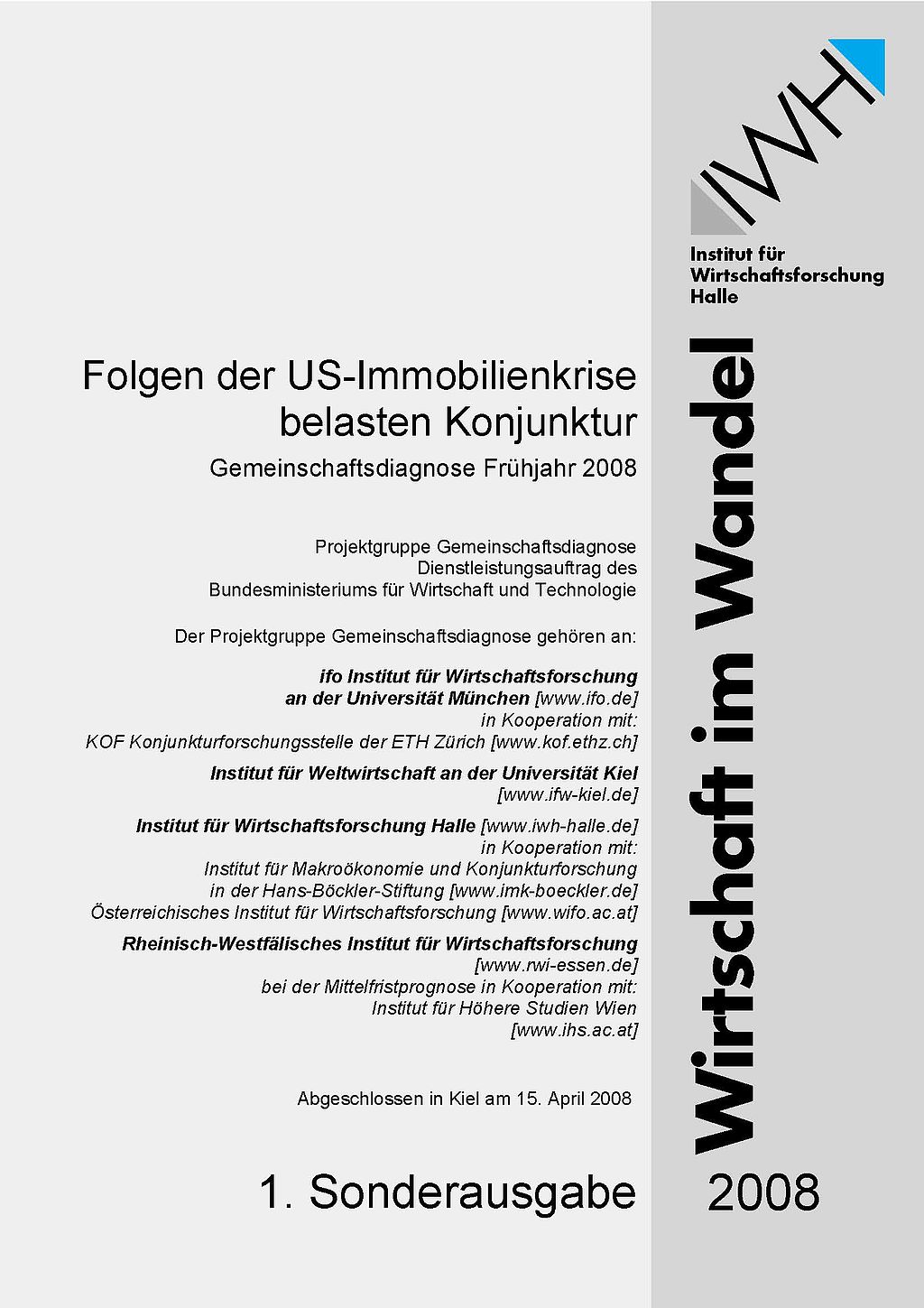
Consequences of the US-subprime Crisis Dampen Economic Growth in Germany
The crises of the housing and the financial sector in the US and the turmoil on worldwide financial markets have clouded the prospects of the world economy for this and next year. In particular, conditions for financing consumption and investment will worsen. In addition, the price hikes for energy and food entail a redistribution of purchasing power from ordinary households to the producers of these goods. As a consequence of all this, the economy in the US will be more or less stagnating this year, and world growth will slow down. Firms in the nonfinancial sector, however, are generally in good financial condition, policy in the US takes strong measures to contain the crisis, and growth dynamics in emerging markets economies appear to be robust enough to withstand the dampening effects. In Germany, the economy is, in spite of the adverse effects from abroad and in particular the strong appreciation of the euro, still in good shape. Apparently, the economy has become more robust in the past years, partly due to increased competitiveness of German producers. Still, economic expansion will slow down, with annual growth rates of 1.8% for this year and 1.4% for 2009. For the first time the forecast of the institutes comprises a medium term projection. For this, the potential growth rate of the German Economy is estimated to be 1.6%. As to policy recommendations, the institutes advise against the establishment of minimum wages in Germany, because they fear adverse effects for employment. In this point the IWH and its partners take a different view.




